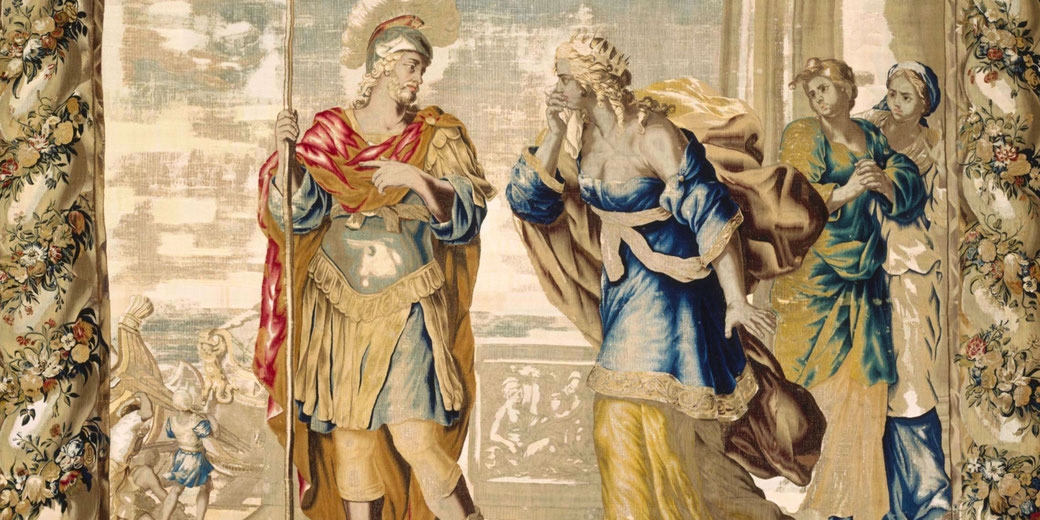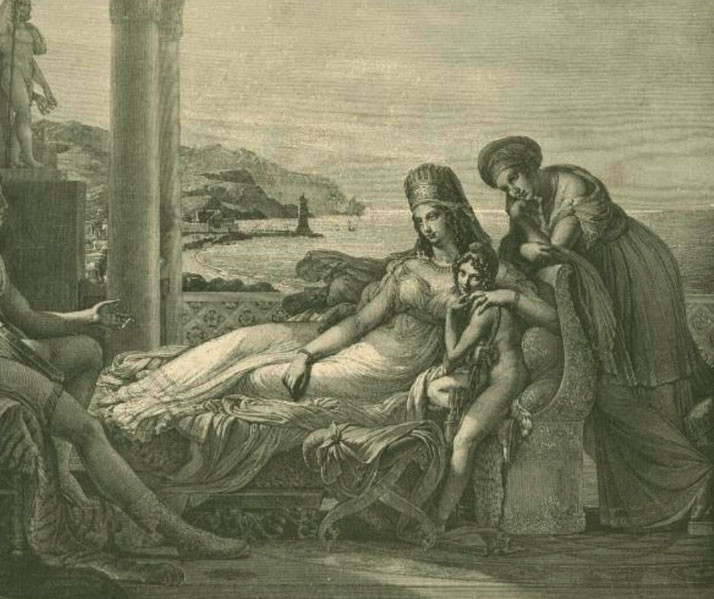Aeneas and Dido: The tragic love story at the dawn of Rome's history

Few stories show the true nature of tragic love, heroism, and destiny better than the tale of Aeneas and Dido. Their doomed love is typified in Aeneas' duty and faithfulness: struggling between his love for Dido and his mission to find a new home for his people.
For her part, Dido felt the deep pain of love cut short...
Who were Aeneas and Dido before they met?
To appreciate their later relationship, we first explore their pasts. According to legend, Aeneas was one of the few survivors of Troy after the Greeks destroyed it in the Trojan War.
He had escaped Troy's burning walls and set out to build a new city that would become the place we know as Rome.
By contrast, Dido fled her home city of Tyre after her brother Pygmalion tried to kill her.
She led her followers to North Africa, where her ingenuity and hard work led her to found Carthage in around 814 BCE.
Over the following years, Carthage flourished under her rule.

How do we know about their story?
We know about Dido and Aeneas from the Aeneid, a Latin epic poem written between 29 and 19 BCE.
Its twelve books are our main source for these characters. Virgil based his work on earlier stories like Homer’s Iliad and Odyssey, but he made it distinctly Roman.
In the Aeneid, Virgil tells how Aeneas travelled from Troy’s ruins to Italy in a way that matched the values of Augustan Rome.
In Books 1 and 4 is where the events with Dido appear, with Aeneas’s arrival in Carthage and their affair being one of many key subplots.

How Dido and Aeneas met
Their meeting happens under dramatic, even divine, circumstances. After Aeneas and his men escaped Troy, the goddess Juno sent a storm to stop their journey to Italy.
Instead, it drove them to Carthage where Dido welcomed the shipwrecked Trojans.
Aeneas apparently entered Carthage under a protective mist that his mother, Venus, had sent.
Once inside Juno’s temple, the mist cleared, and Aeneas appeared before Dido.
The queen was impressed by his story of Troy’s fall and invited him to her court.
According to Virgil, their attraction was immediate and strong.
The tragic love story unfolds
After they met, Dido, who is drawn to Aeneas’s heroic past and gentle manner, fell deeply in love with him.
At first, the depth of his passion makes Aeneas forget his original goal of seeking out a new homeland.
However, their happiness ends when Jupiter sends Mercury to remind Aeneas of his duty to his people.
With his sense back, Aeneas makes the painful choice to leave Carthage and his potential relationship with its queen.
As a result, Dido felt betrayed, and subsequently, her deep love turned into intense sorrow.
Because she could not live with her pain, Dido took her own life. At the moment before her death, she condemned Aeneas and his future descendants.

What is the point of this story?
The tale of Aeneas and Dido shows so some key literary themes that explore human experience and the social values of ancient Rome.
One main theme is fate. Aeneas’s destiny to found Rome guides his actions, so much so that his love for Dido is replaced by his duty.
By contrast, Dido is caught up by fate. Her death was meant to highlight the personal cost of power and sacrifice.
How are we meant to feel about the characters?
As Virgil presents the tale, Aeneas represents Roman ideals: piety, duty, and self-control.
As the son of Venus and a mortal man, Aeneas puts his duties first: the ideal hero who follows the gods’ will even at personal cost.
For her part, Queen Dido of Carthage represents strength, leadership, and tragic love.
While she escaped her brother’s betrayal and founded a city through skill and determination, her love for Aeneas causes her death.
What do you need help with?
Download ready-to-use digital learning resources
Copyright © History Skills 2014-2025.
Contact via email
With the exception of links to external sites, some historical sources and extracts from specific publications, all content on this website is copyrighted by History Skills. This content may not be copied, republished or redistributed without written permission from the website creator. Please use the Contact page to obtain relevant permission.





